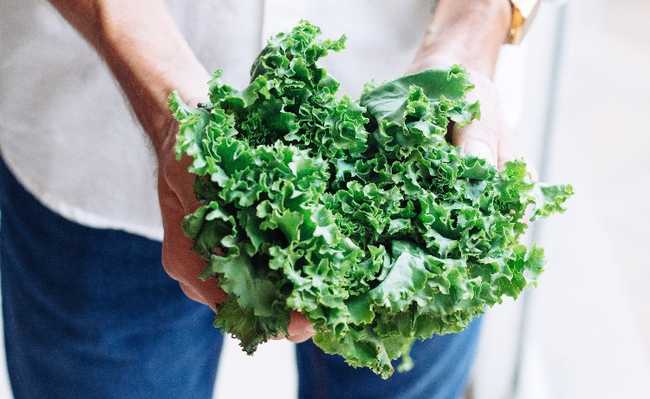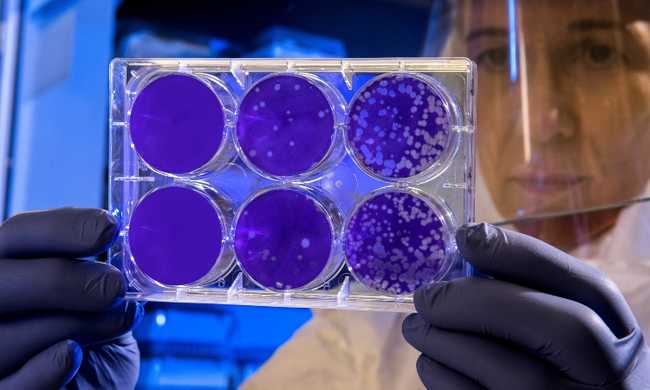What is vegetarianism and its benefits
Understand the reasons why people from around the world adhere to vegetarianism

Edited and resized image by Louis Hansel @shotsoflouis, is available on Unsplash
Vegetarianism is a food practice that excludes the consumption of animal derivatives such as red meat, having vegetables and fungi as the main food source. Vegetarianism has emerged as a significant food movement in Western cultures (1 and 2). The benefits of being a vegetarian include improved health (3, 4), a more sustainable environment (5, 6, and 7) and a more empathetic relationship with nonhuman animals (8, 9).
The expressions "strict vegetarian" and "ovolactovegetarian" were created to differentiate people who have a diet based 100% on vegetables and fungi from those who exclude meat but consume dairy products and eggs, respectively.
- Ghost fishing: the invisible danger of fishing nets
There are other diets and philosophies of life that propose the total exclusion or reduction in the consumption of animal derivatives, such as Peixetarianism, flexitarianism, peganism and veganism. In the latter case, in addition to the diet being completely based on fungi and vegetables, therefore, strictly vegetarian, there is an ethical concern with the welfare of animals involved in the production of any food, products and utensils - cosmetics tested on animals being avoided; any type of meat, dairy and eggs; leather objects; among other products that involve suffering and contain derivatives, excretions or parts of the organism of any animal.
Reasons to join vegetarianism
1. Longevity
Being a vegetarian can result in longer life, according to a study published in the journal. JAMA Internal Medicine. According to the survey, conducted by professionals at the Loma Linda Seventh-day Adventist University, in the United States, strict vegetarians (who only eat vegetables and fungi) have a 15% lower risk of death, while those who are lacto-ovo vegetarian (who have a diet based on vegetables, eggs, milk and dairy products) have a 9% lower risk of death than people who eat meat. Pesco-vegetarians (who eat fish, vegetables, eggs and dairy products) have a 19% lower risk of death. Finally, semi-vegetarians (they consume less meat than a person on a standard diet and do not eat beef and pork, although they eat chicken and fish) have an 8% lower risk of death compared to those who eat more meat. frequency.
2. Decreases the risk of chronic diseases
A study by researchers at Oxford University, which came out in early 2013, showed that being a vegetarian reduced the risk of heart disease by 32 percent, compared to a diet based on meat and fish. This survey included 45,000 people in the UK, 34% of them vegetarians. Researchers found in this study that adhering to vegetarianism is less likely to have high body mass indexes, as well as to have diabetes. A 2011 study published in the journal Diabetes Care showed that being a vegetarian is associated with a decrease in risk factors for metabolic syndrome, which is a set of disorders that are associated with an increased risk of diabetes and cardiovascular disease.
A review of 25 studies located on the platform PubMed concluded that a diet with a reduction in animal products contributes to a reduction in the risk of obesity and type 2 diabetes. In addition to improving markers of metabolic health and blood pressure, it also plays a role in the treatment of inflammatory bowel diseases such as Crohn's disease .
3. Adhering to vegetarianism is more effective against the greenhouse effect than stopping driving in a car
According to a survey by Yale University, the production of red meat has a much greater environmental impact compared to other types of meat (pork and poultry), vegetables and animal derivatives (dairy and eggs). This is because, according to a study, there is a loss of trophic energy with the process of rumination in cattle.
The study looked at the amount of land, water and nitrogen fertilizers needed to expand meat production and compared that with poultry, pigs, eggs and dairy products. It was concluded that between 2% and 12% of the gross energy consumed by cattle is wasted in the production and elimination of methane gas.
"Only a fraction of the food consumed by cattle passes into the bloodstream, so some of the energy is lost," said the expert who led the research Gidon Eshel.
Feeding cattle with grain instead of grass aggravates this inefficiency, although Eshel points out that even cattle fed with grass still have a greater environmental footprint than other animal products.
Eshel also stated that "eating less red meat would reduce the carbon footprint more than giving up driving a car."
4. Decreases asthma symptoms
An older Swedish study suggests that a strict vegetarian diet may decrease asthma symptoms. Twenty-two of the 24 participants who had been on a vegan diet for one year had improvements, including less drug addiction.
It is thought that certain animal foods can produce a response to allergies or inflammation, so removing these foods from the diet may reduce these responses.
5. Reduces environmental pressure on soils and water resources
Vegetable food production requires much less land space than animal food production. In one hectare of land, for example, it is possible to plant 42,000 to 50,000 tomato plants or produce only an average of 81.66 kg of beef per year. Thus, strict vegetarian diet encourages a reduction in deforestation.
The water savings are also quite significant: to produce a kilo of soy (which is a source of complete protein), 500 liters of water are used, while for a kilo of beef, 15 thousand liters are needed.
Studies have shown that reducing the consumption of animal products relieves pressure on land use (10, 11) and can be essential to avoid negative environmental impacts, such as large agricultural expansion (12).
- Intensive animal husbandry for meat consumption impacts the environment and consumer health
- The dangers and cruelty of animal confinement
- Far beyond animal exploitation: cattle raising promotes consumption of natural resources and environmental damage on a stratospheric scale
6. It is more effective in combating climate change than mitigation technologies
Changing diets may be more effective than technological mitigation options in preventing climate change, according to one study. Three other studies concluded that a plant-based diet contributes to the reduction of greenhouse gas emissions (13, 14 and 15). Other research has shown that, if adopted worldwide, vegetarianism would reduce global warming by more than 2°C, ensuring access to safe and affordable food for a growing global population (16 and 17).
- Publication links meat consumption to poverty and climate change
7. Reduces the risk of cancer
Studies have found that, in low-risk populations, adhering to vegetarianism reduces overall cancer risk. A vegan (strict vegetarian) diet has been found to reduce cancer risk more than other diets, offer the greatest protection against cancers for women, and offer the greatest protection against cancers of the gastrointestinal tract.
8. If everyone were strict vegetarians, millions of lives and trillions of dollars would be saved
A survey published in the magazine Proceedings of the National Academy of Sciences concluded that if everyone adopted a plant-based diet, by 2050, 8.1 million deaths would be avoided. Transitioning to plant-based diets, in line with standard dietary guidelines, can reduce overall mortality by 6-10%.
According to the same research, the economic benefits of a worldwide vegetarian diet would help save 1 to 31 trillion dollars, which would equate to 0.4 to 13% of the global Gross Domestic Product (GDP) in 2050.
9. It's the most effective way to save the planet
The Commission EAT-Lancet by Food, Planet, Health brought together more than 30 world-leading scientists from around the world to reach a scientific consensus on what is healthy and sustainable food. The study, published in the journal The Lancet, concluded that food production and consumption must change drastically to prevent millions of deaths and catastrophic damage to the planet.
The way to avoid these two scenarios is a significant change in diet: eat half the amount of sugar and red meat that is currently consumed and double the amount of vegetables - this includes grains, vegetables, leaves, vegetables, dried and fresh fruits.
The commission's researchers say that if people followed this diet, more than 11 million premature deaths could be prevented each year, greenhouse gas emissions would be reduced, and more land, water and biodiversity would be preserved.
Another survey showed that if everyone were vegetarian. food-related greenhouse gas emissions would be reduced by 29-70% compared to a baseline scenario in 2050.
What makes a person adhere to vegetarianism?
According to one analysis, health, environmental benefits and animal rights represent the top three reasons why people adhere to vegetarianism in Western societies.
How to begin
If you want to be a vegetarian, but want to take it easy, follow some tips to get used to the practice. Start meatless on Monday and then become a vegetarian throughout weekdays.
If you are considering vegetarianism, devise a food plan to ensure you can get all the nutrients your body needs and don't blame yourself for "relapses", any change in habits is a process that takes time.










